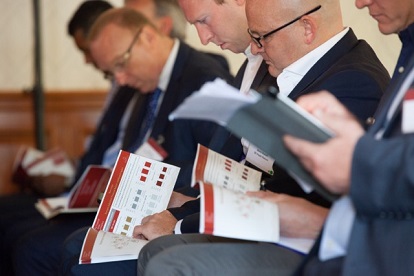Is merging/acquiring the best way to grow your client base? Or can you get the numbers through organic growth?
ORGANIC GROWTH VS ACQUISITION
- Acquiring businesses is tough. Growth is easier to achieve organically and as much effort as possible should be expended on the latter before considering buying another business
- Organic growth takes time, on average it takes 4-7 years for a paraplanner to make it to a financial planner assuming this is the career path they want to take
- Recruiting talent remains a key barrier to growth for small financial planning firms. Suggested sources of talent are staff working in banks or life assurance companies who have product knowledge and interpersonal skills but are unlikely to bring a client bank with them. Ex-military staff are also seen as potentially attractive recruits into the professions. Apprenticeships are also good but this is a very long and uncertain path to getting a fully qualified and client ready financial planner
- If you want to grow quickly, an acquisition is the best option
CULTURE, DEAL STRUCTURE AND POST-DEAL INTEGRATION
- When buying a business, the riskiest aspect is the post-deal integration and more effort should be put into planning this than most acquirers do. Getting this wrong can lead to value destruction rather than value creation from doing the deal
- During the post-acquisition period there are integration and other transitional challenges which can involve both the acquirer’s and the acquired company’s management diverting time to internal management matters, new practices also take a while to embed and Benchmark’s experience is that an acquired company’s profit can drop by some 20-25% during this post-deal phase
- For smaller firms it is safer to buy the book of business rather than the corporate entity as the latter may contain historically liabilities and other issues. Generally larger businesses are not willing to sell just the book. Furthermore the amount of due diligence needed to be done on a company is much greater than when buying the book of business and it may only make sense to do that extra work for a larger deal
DUE DILIGENCE
- One key area for due diligence is on pension transfers.
- Many buyers will only buy businesses which they have previously known for example as a product provider using a distributor, a network looking to buy one of its members or a platform buying a user firm
SELF EMPLOYED VS. EMPLOYED VALUATION
- Firms with self-employed advisers are less valuable than those with employed advisers because clients of the former are often more loyal to the adviser than to the firm.
- Furthermore, employed advisers are generally easier to control from a regulatory and wider risk management perspective which would be more attractive to a buyer seeking to get the acquired firm to allow its new owner’s governance procedures and business modus operandi.
- Restrictive covenants are also harder to enforce for self-employed advisers.
- Employed advisers are generally more loyal but in the event they do leave the employers will have the time under employment contract termination provisions to introduce other advisers to the departing adviser’s clients before the leaver starts at their new firm and that may help the client retention
IS SELLING ALL ABOUT PRICE?
- If you want to be a successful acquirer you need to have better technology and processes than the company you are looking to buy
- Some business owners want to sell their businesses to their staff. This can be prohibitively expensive for the staff to afford so one option may be Employment Ownership Trust (EOT) which is a tax efficient way for achieving succession planning. The downside is it will not generate the same value to the vendor as a conventional sale to a buyer and it will change the dynamic of the relationship between the staff and the former owner which may be hard for the former owner to accept. Specialist tax and legal advice should be sought if this is an exit route an owner wishes to explore
- Despite best intentions of vendors regarding fit and culture, on most cases money talks and the highest bidder often wins. Beware of valuing non-cash consideration
- Sellers should be wary of attractive looking earn out figures as it can be extremely hard to hit those earn outs and most businesses do not achieve the top maximum earn out price. The difficulty of achieving that earn out would be compounded by the departure post sale of key clients and/or advisers and therefore, to mitigate such risk, it is important to ensure that there is a good cultural fit with the new owner
Expert: Keith Hare, Benchmark Capital
Facilitator: Richard Clarke, Independent Consultant


